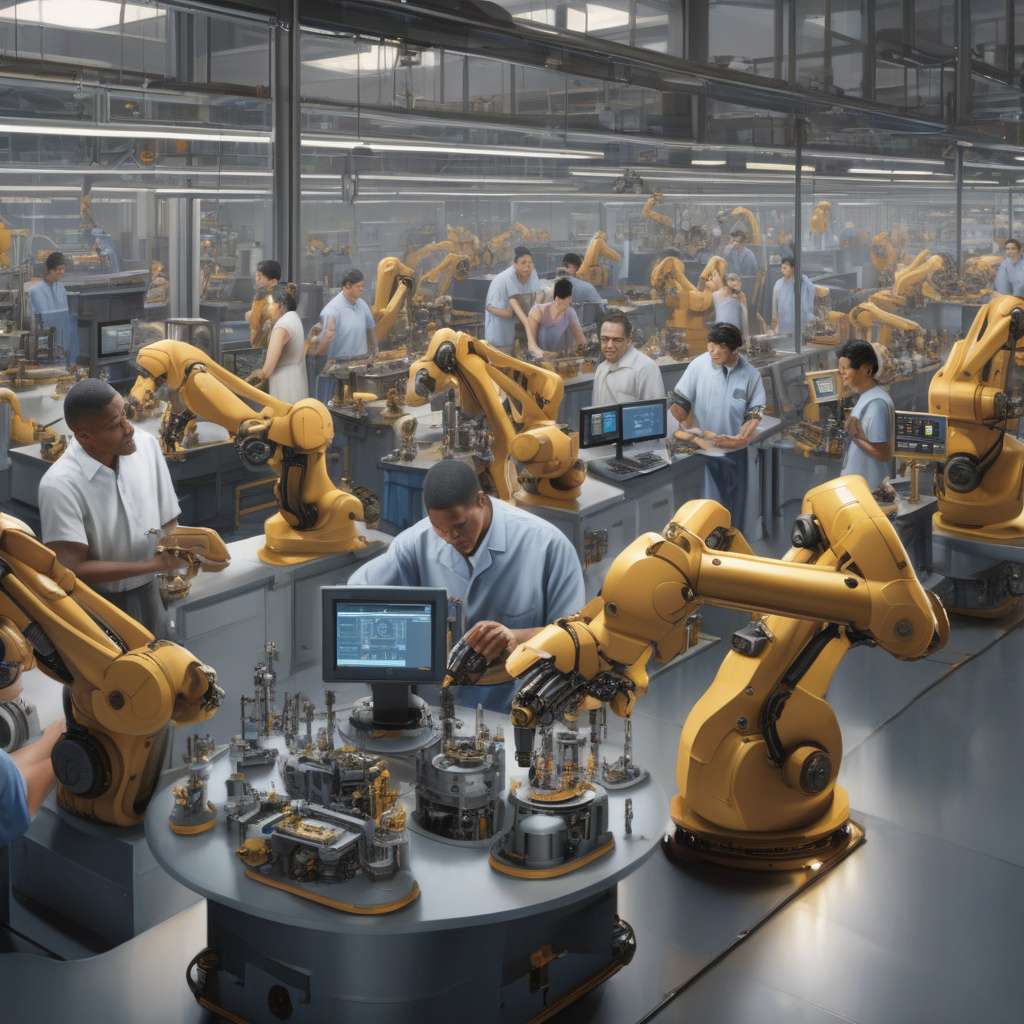GenAI Promises Manufacturing Boost but Firms Lack Readiness
Manufacturers worldwide are eyeing generative AI as a game-changer in their quest for digital transformation. The potential benefits of leveraging AI in manufacturing processes are vast, from optimizing production lines to predicting maintenance needs. However, despite the promises that GenAI holds, a recent study by NTT DATA across 34 countries reveals a significant roadblock – a staggering 92% of manufacturing firms lack the technology and policies required to harness the full potential of generative AI.
Generative AI, often referred to as GenAI, represents a subset of artificial intelligence that focuses on enabling machines to generate content. In the manufacturing sector, this technology can revolutionize product design, streamline production processes, and enhance overall operational efficiency. By leveraging GenAI, manufacturers can create innovative designs, automate mundane tasks, and even predict potential bottlenecks in the production cycle.
According to the research conducted by NTT DATA, the vast majority of manufacturing firms are aware of the transformative power of generative AI. However, the lack of readiness in terms of both technology infrastructure and regulatory policies poses a significant challenge. Without the necessary technological capabilities and clear guidelines in place, many companies struggle to implement GenAI effectively.
One of the key reasons behind the lack of readiness among manufacturing firms is the complexity of integrating AI technologies into existing processes. From data collection and analysis to model training and deployment, adopting generative AI requires a comprehensive strategy and robust infrastructure. Many companies find themselves ill-equipped to navigate this complexity, leading to implementation delays and missed opportunities for innovation.
Moreover, the absence of clear policies and regulations around AI in the manufacturing sector further complicates the adoption of GenAI. As AI technologies continue to evolve rapidly, ensuring ethical use, data privacy, and algorithm transparency becomes paramount. Without a solid regulatory framework in place, manufacturers may hesitate to fully embrace generative AI due to concerns about compliance and accountability.
To address these challenges and unlock the full potential of GenAI, manufacturing firms must take proactive steps to enhance their readiness. This includes investing in AI capabilities, such as data analytics tools and machine learning algorithms, to support the implementation of generative AI. Additionally, companies need to prioritize the development of robust policies and governance frameworks to ensure responsible and ethical use of AI technologies.
By overcoming these barriers and embracing generative AI effectively, manufacturing firms can position themselves for success in the digital era. From accelerating innovation to improving operational efficiency, GenAI has the potential to drive significant value for companies that are willing to invest in readiness and embrace the transformative power of artificial intelligence.
In conclusion, while the promise of generative AI in manufacturing is undeniable, the lack of readiness among firms poses a significant obstacle to realizing its full potential. By addressing the technological and policy gaps and proactively investing in AI capabilities, companies can pave the way for a successful integration of GenAI into their operations, driving innovation and efficiency in the ever-evolving landscape of manufacturing.
manufacturing, GenAI, artificialintelligence, digitaltransformation, NTTDATA
